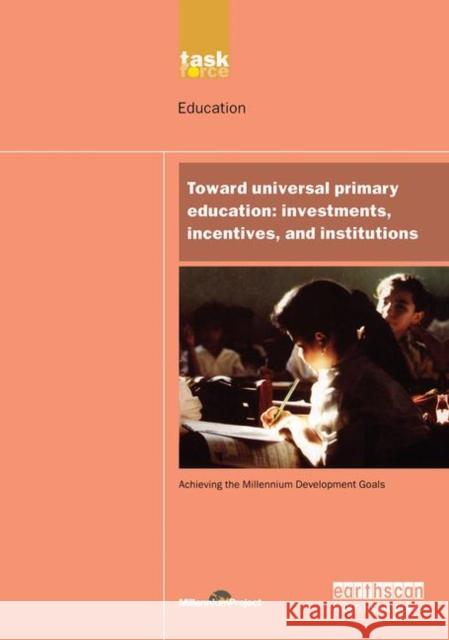Un Millennium Development Library: Toward Universal Primary Education: Investments, Incentives and Institutions » książka
Un Millennium Development Library: Toward Universal Primary Education: Investments, Incentives and Institutions
ISBN-13: 9781844072217 / Angielski / Miękka / 2005 / 204 str.
Un Millennium Development Library: Toward Universal Primary Education: Investments, Incentives and Institutions
ISBN-13: 9781844072217 / Angielski / Miękka / 2005 / 204 str.
(netto: 166,21 VAT: 5%)
Najniższa cena z 30 dni: 174,88
ok. 22 dni roboczych.
Darmowa dostawa!
The Millennium Development Goals, adopted at the UN Millennium Summit in 2000, are the world's targets for dramatically reducing extreme poverty in its many dimensions by 2015 income poverty, hunger, disease, exclusion, lack of infrastructure and shelter while promoting gender equality, education, health and environmental sustainability. These bold goals can be met in all parts of the world if nations follow through on their commitments to work together to meet them. Achieving the Millennium Development Goals offers the prospect of a more secure, just, and prosperous world for all. The UN Millennium Project was commissioned by United Nations Secretary-General Kofi Annan to develop a practical plan of action to meet the Millennium Development Goals. As an independent advisory body directed by Professor Jeffrey D. Sachs, the UN Millennium Project submitted its recommendations to the UN Secretary General in January 2005. The core of the UN Millennium Project's work has been carried out by 10 thematic Task Forces comprising more than 250 experts from around the world, including scientists, development practitioners, parliamentarians, policymakers, and representatives from civil society, UN agencies, the World Bank, the IMF, and the private sector. This report lays out the recommendations of the UN Millennium Project Task Force on Education and Gender Equality. In the education sector, the Task Force recommends that countries now off track expand access, overcome demand-side barriers, and implement institutional changes to make the education system more responsive and accountable. As part of a compact with low-income countries working toward the goal of 100% primary school completion by 2015, donors and the international community must fulfill commitments already made under the Fast Track Initiative, and commit to still greater levels of support."











